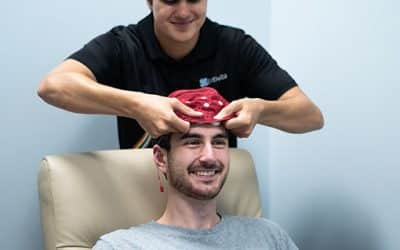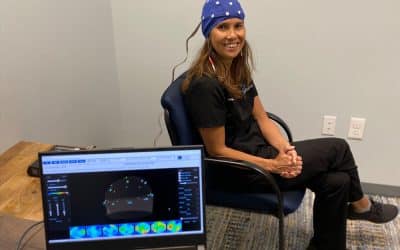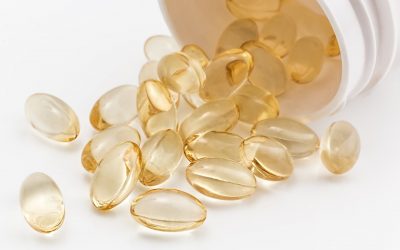Abstract Background: It has been suggested that depressed persons have increased oxidative stress and decreased anti-oxidant defences. 8-Hydroxy-2'-deoxyguanosine (8-OHdG) and F2-isoprostanes, measures of oxidative DNA and lipid damage respectively, are among the most...
Depression
Dysregulated relationship of inflammation and oxidative stress in major depression
Abstract Chronic inflammation and oxidative stress have been implicated in the pathophysiology of Major Depressive Disorder (MDD), as well as in a number of chronic medical conditions. The aim of this study was to examine the relationship between peripheral...
A new neurofeedback protocol for depression
Abstract Context: Neurofeedback represents an exciting complementary option in the treatment of depression that builds upon a huge body of research on electroencephalographic correlates of depression. Objective: The objectives of this article are threefold: review the...
Increased 8-hydroxy-deoxyguanosine, a marker of oxidative damage to DNA, in major depression and myalgic encephalomyelitis / chronic fatigue syndrome
Abstract Background: There is now evidence that major depression and myalgic encephalomyelitis / chronic fatigue syndrome (ME/CFS) are accompanied by partially overlapping pathophysiological mechanisms, i.e. activation of various inflammatory and oxidative &...
Associations of depression with C-reactive protein, IL-1, and IL-6: a meta-analysis
Abstract Objective: To assess the magnitude and direction of associations of depression with C-reactive protein (CRP), interleukin (IL)-1, and IL-6 in community and clinical samples. Methods: Systematic review of articles published between January 1967 and January...
Neurofeedback Treatment of Depression and Anxiety
Abstract A robust body of research documents that there are biological predispositions that often exist for depression, anxiety, and obsessive–compulsive disorder. However, new research has shown that medication is only mildly more effective than placebo in the...
Vitamin B6 level is associated with symptoms of depression
Abstract Background: A low level of vitamin B6 might theoretically cause depression as vitamin B6 is a cofactor in the tryptophan-serotonin pathway. In the present study, we examined the association between depression and the phosphate derivative of vitamin B6 in...
Affective Style and Affective Disorders: Perspectives from Affective Neuroscience
Abstract Individual differences in emotional reactivity or affective style can be decomposed into more elementary constituents. Several separable of affective style are identified such as the threshold for reactivity, peak amplitude of response, the rise time to peak...
B complex vitamin patterns in geriatric and young adult inpatients with major depression
Abstract This study compared the B complex vitamin status at time of admission of 20 geriatric and 16 young adult non-alcoholic inpatients with major depression. Twenty-eight percent of all subjects were deficient in B2 (riboflavin), B6 (pyridoxine), and/or B12...









